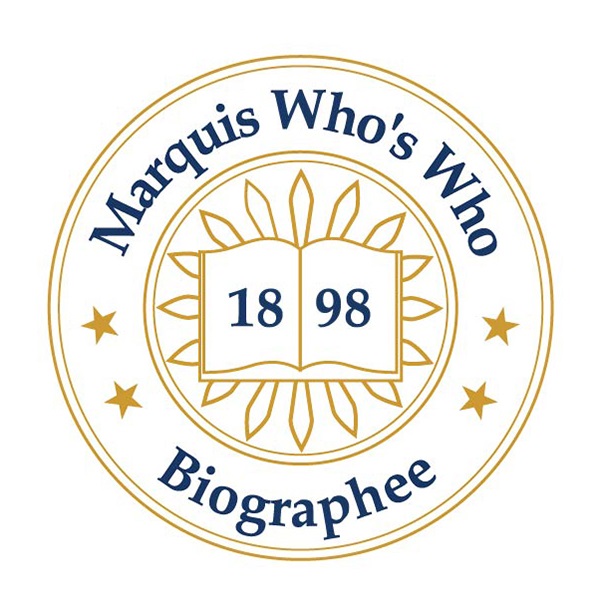HAMDEN, CT, November 05, 2024 /24-7PressRelease/ -- Evan J. Siegel, PhD, has been selected for inclusion in Marquis Who's Who. As in all Marquis Who's Who biographical volumes, individuals profiled are selected on the basis of current reference value. Factors such as position, noteworthy accomplishments, visibility, and prominence in a field are all taken into account during the selection process.
Dr. Siegel is a distinguished academic and translator with over four decades of experience in his profession. He started teaching at the Borough of Manhattan Community College in 1984. He taught in a non-tenured full-time capacity at LaGuardia Community College (remedial mathematics, calculus, and a faculty seminar on Galois theory), Fordham University (calculus), Brooklyn College (pre-calculus, calculus, abstract algebra, non-Euclidian geometry, field theory, business mathematics), New Jersey State University (remedial mathematics, linear (matrix) algebra, abstract algebra), and Yeshivat Ramaz High School (tenth-grade geometry and AP calculus).
He also taught for some ten years at John Jay College of Criminal Justice (remedial courses, finite math, Visual Basic for Applications, the first and second terms of C++, web page design, JavaScript, and Microsoft Word), Hunter College (remedial courses, business mathematics, pre-calculus, statistics, calculus I & II, Mathematica, JavaScript, web-page design, HTML). He currently serves as an adjunct assistant professor at Borough of Manhattan Community College in the City University of New York.
He also taught at Brooklyn College as an adjunct assistant professor (pre-calculus, for teachers, geometry, non-Euclidean geometry), the Fashion Institute of Technology (remedial mathematics, geometry, and design), New York Institute of Technology (calculus III and linear algebra), Baruch College (college algebra), and other educational institutions.
In addition to mathematics, Dr. Siegel taught himself several computer languages and gave classes on computer programming, first at the John Jay College of Criminal Justice (Excel VBA and C++), then at the New York City College of Technology (Java applications for multimedia and mobile devices, Java programming, Python, SQL database management, data storage and management, and principles of business organization), Nassau Community College (a two-term summer course on Java programming), Queensborough Community College (C++), John Jay College, where he taught Mathematica, Javascript, HTML web page design), and Poly Prep Country Day School (AP computer programming (Java)). As a VBA hobbyist, he developed a program for converting Microsoft documents to HTML and other applications, and another to automatically update the membership list of a synagogue and print letters to members advising them on staying current with their dues.
He was invited to present papers at five meetings of the International Conference on Technology in Collegiate Mathematics hosted by Pearson Publishers, the latest being on the strengths and weaknesses of using AI on randomized test generation and the power of Latex programming in this capacity. I concluded that AI and Latex programming are most useful when used together so as to utilize their strengths and avoid their weaknesses.
In addition to his teaching roles, Dr. Siegel has made significant contributions to the field of Iranian studies. He taught himself Persian, Arabic, Georgian, Azerbaijani Turkish, and some German and Russian, and studied Middle Persian under Professor James Russel at Columbia University. He is currently working on translating and annotating the History of the Iranian Constitutional Revolution, a classic of Iranian historiography. He is a member of the Association for Iranian Studies, where he has presented numerous papers on the culture and politics of the Azerbaijani modernist satirical weekly Mollah Nasroddin, a Palestinian leftist view of the Iranian revolution of 1979, the iconoclastic book on Shiism, Shahid-e Javid, the crisis of the Islamic Revolution and the fall of Ayatollah Montazeri, the writings of the pioneer of Iranian nationalist historiography, Ahmad Kasravi, Soviet Georgian historiography of Georgian participation in the Iranian Constitutional Revolution. In addition to my conference papers, I have given talks in Germany (under the auspices of the annual Press and Public Opinion in the Islamic World Seminar), the Republic of Georgia, Azerbaijan, and France. I have been invited to speak on Deutsche Welle, the Voice of America, the BBC, and Press TV. In addition to the above seminar's publishing my papers, my article "In Search of the Secret Center" was published in Iran's Constitutional Revolution of 1906 and Narratives of the Enlightenment, ed. Ali Ansari, Ginko Press, 2016. (For the text of the articles, visit my website, https://iran.qlineorientalist.com/)
My future projects include further research on the aforementioned crisis of the Islamic Republic based on material that has come to light recently, annotated translations about Georgian sources on the Iranian Constitutional Revolution, and Kasravi's above-mentioned masterpiece. In addition, I plan to work on my math test generator using AI and Latex programming.
About Marquis Who's Who®:
Since 1899, when A. N. Marquis printed the First Edition of Who's Who in America®, Marquis Who's Who® has chronicled the lives of the most accomplished individuals and innovators from every significant field of endeavor, including politics, business, medicine, law, education, art, religion and entertainment. Who's Who in America® remains an essential biographical source for thousands of researchers, journalists, librarians and executive search firms around the world. The suite of Marquis® publications can be viewed at the official Marquis Who's Who® website, www.marquiswhoswho.com.
# # #
Contact Information
-- --
Marquis Who's Who Ventures LLC
Uniondale, NY
USA
Telephone: 844-394-6946
Email: Email Us Here
Website: Visit Our Website




